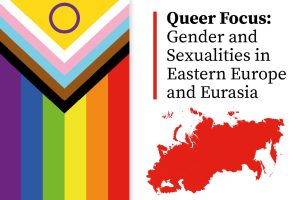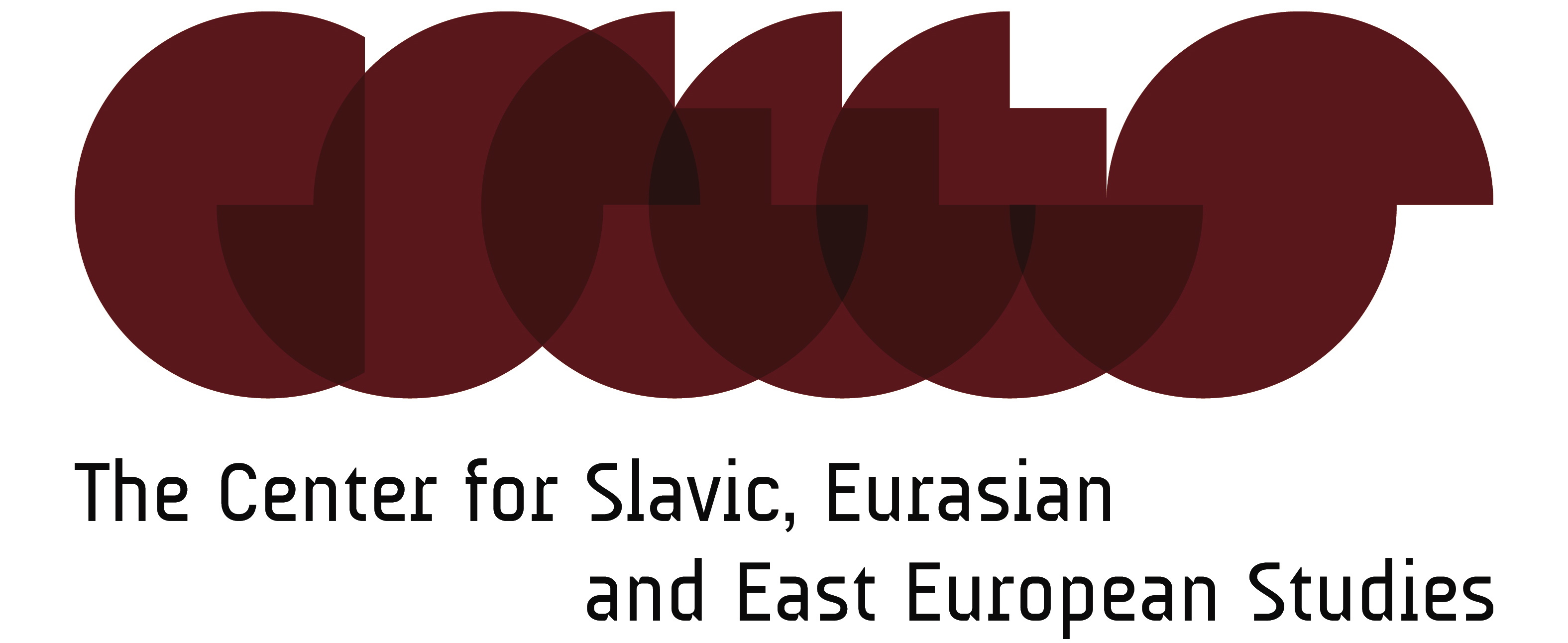
- This event has passed.
Queer Focus Series • History and Archives
January 26 @ 11:00 am - 12:30 pm
 The impacts of war can be felt far outside the actual battlefield. Russia’s war against Ukraine has set off historic levels of migration, in addition to huge environmental and economic impacts. Modern war also disproportionately affects gender and sexual minorities, something we are seeing in Ukraine even as Putin’s anti-LGBTQ+ agenda seeks to relentlessly drive support for the war at home. How can a queer-studies focus advance conversations about decolonization in East European and Eurasian Studies? To address this question, Queer Focus will have six virtual panels featuring speakers from various disciplines and institutions. Panelists and participants will explore how gendered regimes were constitutive of Russo-centric relationships of power, defining the region and how we study it, as we collectively grapple with what it means to re-examine our current research, teaching, and institutional practices.
The impacts of war can be felt far outside the actual battlefield. Russia’s war against Ukraine has set off historic levels of migration, in addition to huge environmental and economic impacts. Modern war also disproportionately affects gender and sexual minorities, something we are seeing in Ukraine even as Putin’s anti-LGBTQ+ agenda seeks to relentlessly drive support for the war at home. How can a queer-studies focus advance conversations about decolonization in East European and Eurasian Studies? To address this question, Queer Focus will have six virtual panels featuring speakers from various disciplines and institutions. Panelists and participants will explore how gendered regimes were constitutive of Russo-centric relationships of power, defining the region and how we study it, as we collectively grapple with what it means to re-examine our current research, teaching, and institutional practices.
Panel 2 of the series will look take a historical view of queer studies within the region, with a special look at the role and availability of archives. Join Zoom Webinar.
MODERATOR
Anita Kurimay, Associate Professor of History / Director of Gender and Sexuality Studies, Bryn Mawr College
SPEAKERS
Feruza Aripova, Visiting Scholar, Columbia University
Kamil Karczewski, Fellow, Institute of Historical Research, School of Advanced Study, University College London
Irina Roldugina, UCIS Postdoctoral Fellow, University of Pittsburgh
Roman Utkin, Assistant Professor of Russian, East European, and Eurasian Studies, Wesleyan University
Sponsorship
This series was developed and implemented by the Center for Russian, East European, and Eurasian Studies at the University of Pittsburgh, the Davis Center for Russian and Eurasian Studies at Harvard University, and the Center for Slavic, East European and Eurasian Studies at the Ohio State University with support from the Association for Slavic, East European & Eurasian Studies. Additional financial support has been provided by:
Center for Russian, East European, and Eurasian Studies, University of Kansas
Center for Russian, East European, and Eurasian Studies, University of Michigan
Center for Slavic, Eurasian and East European Studies, UNC-Chapel Hill
Inner Asian and Uralic National Resource Center, Indiana University, Bloomington
Institute for European, Russian, and Eurasian Studies, The George Washington University
Institute of Slavic, East European, and Eurasian Studies, University of California, Berkeley
Melikian Center for Russian, Eurasian, and Eastern European Studies, Arizona State University
Robert F. Byrnes Russian and East European Institute, Indiana University, Bloomington

